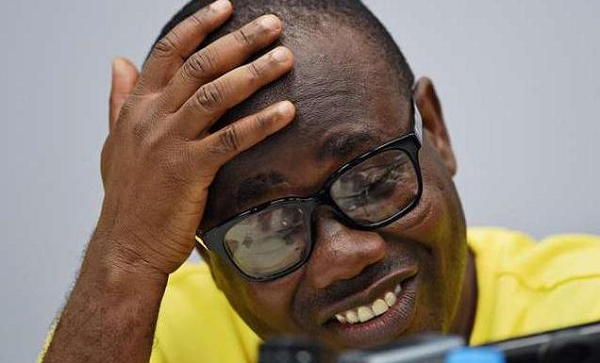
GFA exposé must teach us lessons
Corruption is an age-old problem whose antidote has been very difficult to find.
Man has, over the centuries, had huge challenges as to what constitutes corruption, to the extent that different cultures explain corruption in diverse ways within their cultural and social dimensions.
Fortunately, however, there seems to be one common definition for corruption — the abuse of entrusted power for private gain — which has been adopted by governments and societies around the world.
The fight against the canker has been waged generally around this definition.
Indeed, corruption has a huge adverse impact on societies. It is capable of causing death; it disorganises society and can bring a whole state to destruction.
Corruption is a major obstacle to democracy and the rule of law, as institutions lose their legitimacy and the trust that people have in these establishments are undermined. It is, definitely, challenging to develop accountable political leadership in a corrupt environment.
Additionally, the canker depletes national wealth, as scarce public resources are stolen by the leadership, at the expense of development projects, keeping citizens under-developed and in perpetual poverty.
The cost of corruption to communities when the money needed for the construction of schools, hospitals, water facilities and decent toilets is misappropriated by corrupt officials can only be imagined.
Ghana’s current problems with the environment, evidenced by degradation and the erection of unauthorised structures, are the result of corruption, which makes corrupt officials who have taken bribes to close their eyes to the unlawful siting of structures at unauthorised places.
It is also corruption that leads public officials to fail to enforce environmental regulations and legislation, leading to unrestrained and indiscriminate exploitation of our precious natural resources that has ravaged the entire ecological systems.
The galamsey menace, sand winning and illegal logging, against which we are vehemently fighting with huge financial, material and human resources, are the outcomes of corruption.
It was because of the deadly nature of corruption to the world that the United Nations Convention Against Corruption (UNCAC), a multilateral treaty negotiated by member states of the UN, was established to bring the problem in check.
But Ghanaians’ abhorrence to corruption and its negative effects has been shown by the display of anger, frustration and disappointment that greeted the alleged corrupt practices in Ghana football as revealed by the ace investigative journalist, Anas Aremeyaw Anas, in his exposé currently screening in the country.
Certainly, Ghana is in challenging times. Already the government has suspended all GFA-sanctioned activities while it takes steps to dissolve the association.
But the Daily Graphic calls for calm.
We understand how highly exercised members of the public are, but we appeal to them not to take the law into their own hands while the issue is investigated by the appropriate bodies to bring the perpetrators to book.
Already the people’s representative, Parliament, has announced the setting up of a committee to probe the matter. As due process is followed, we caution especially social commentators not to pronounce any judgement before the suspects involved are found guilty or otherwise.
We appeal to all citizens, especially those in leadership positions and authority, to use this as a lesson and conduct themselves well, since they may not know who is watching them.
Our conviction is that Ghana football will bounce back better and we commend the ace investigator for his work.
